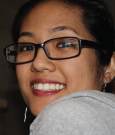The first inkling I had that something could be seriously wrong occurred just over a year ago, when I was suddenly inflicted with such severe heartburn it kept me awake at night. Prescriptions from my doctor for ranitidine (Zantac) and meloxicam (Mobic) not only failed to tamp down the fiery pain, I noticed that my stools were black, the result, I later learned, of internal bleeding caused by meloxicam. By the time I got another appointment with my primary care physician, I was so sick that I passed out in the waiting room and had to be rushed to the emergency room. An endoscopy showed three small peptic ulcers in the lining of my abdomen. A biopsy of one of the ulcers found that it had been caused by Helicobacter pylori.
I was assured that because of my age, I was 26 at the time, and the fact that I have no family history of cancer or other risk factors—I don’t smoke or drink—the chance that the two other ulcers could be cancerous was less than 1%. I was prescribed pantoprazole (Protonix), which I still take, and was tested again a few months later. Although two of the ulcers had disappeared, one remained, and a tissue biopsy of the mass came back positive for stage I gastric cancer.
Coping With the Side Effects of Treatment
Although the tumor was small, less than 1 centimeter in diameter, and all 16 regional lymph nodes removed tested negative for malignancy, my surgeon performed a subtotal gastrectomy and prescribed weekly doses of fluorouracil and oxaliplatin over 6 months to kill any errant cells and prevent tumor recurrence, and today my prognosis is good. However, the emotional and physical trauma of getting a cancer diagnosis and going through treatment will be with me for a long time.
It took several months after the surgery to be able to walk completely upright again, but perhaps the biggest physical challenge is learning what foods I can and cannot digest. The dietitian on my medical team told me because my stomach is so much smaller now, I’m unable to process sugar the way I used to, so I make sure not to go over the limit of 25 g of sugar a day. And I’m still testing how much and what foods to eat to prevent dumping syndrome and malabsorption, but I’m hoping that eventually, I’ll find the right combination and will adjust to my new “normal” eating lifestyle.
The Emotional Side of Cancer
More than the physical transformation from cancer, what I think will have the greatest impact on my life is the change having such a serious disease has made to my psyche. Once a worrier, now I’m more carefree about the future and open to accepting new opportunities that come my way. Last fall, I organized a No Stomach for Cancer Walk to raise awareness and research funding for gastric cancer, and it has now become an annual event.
I also have greater appreciation for the people in my life, especially my family and friends. I always knew I had a wonderful family and group of friends, but this experience has shown me just how fortunate I am. When I was recovering in the hospital from the gastrectomy, so many people I know, including former coworkers, came to see me and made sure I was never alone. Their love and support have gotten me through this ordeal and continue to give me comfort.
I’m also grateful to my oncologist, who has always encouraged open communication between us and made me feel a full participant in my care. Because I was having so many issues with vomiting, constipation, and headaches during treatment, she asked me to keep a food diary, and we would go over the entries every week to see what foods I should eliminate or add to reduce my symptoms. Her thoughtfulness and caring have made this journey more bearable.
Today, I’m looking toward to the future. I’m getting married in the fall and feel optimistic about what lies ahead. My fiancée has long wanted to explore the world and live in other countries. Before my diagnosis I refused to consider such a drastic change. Now I welcome it. ■
Anne Kimha, 27, is a small business owner in Philadelphia.


